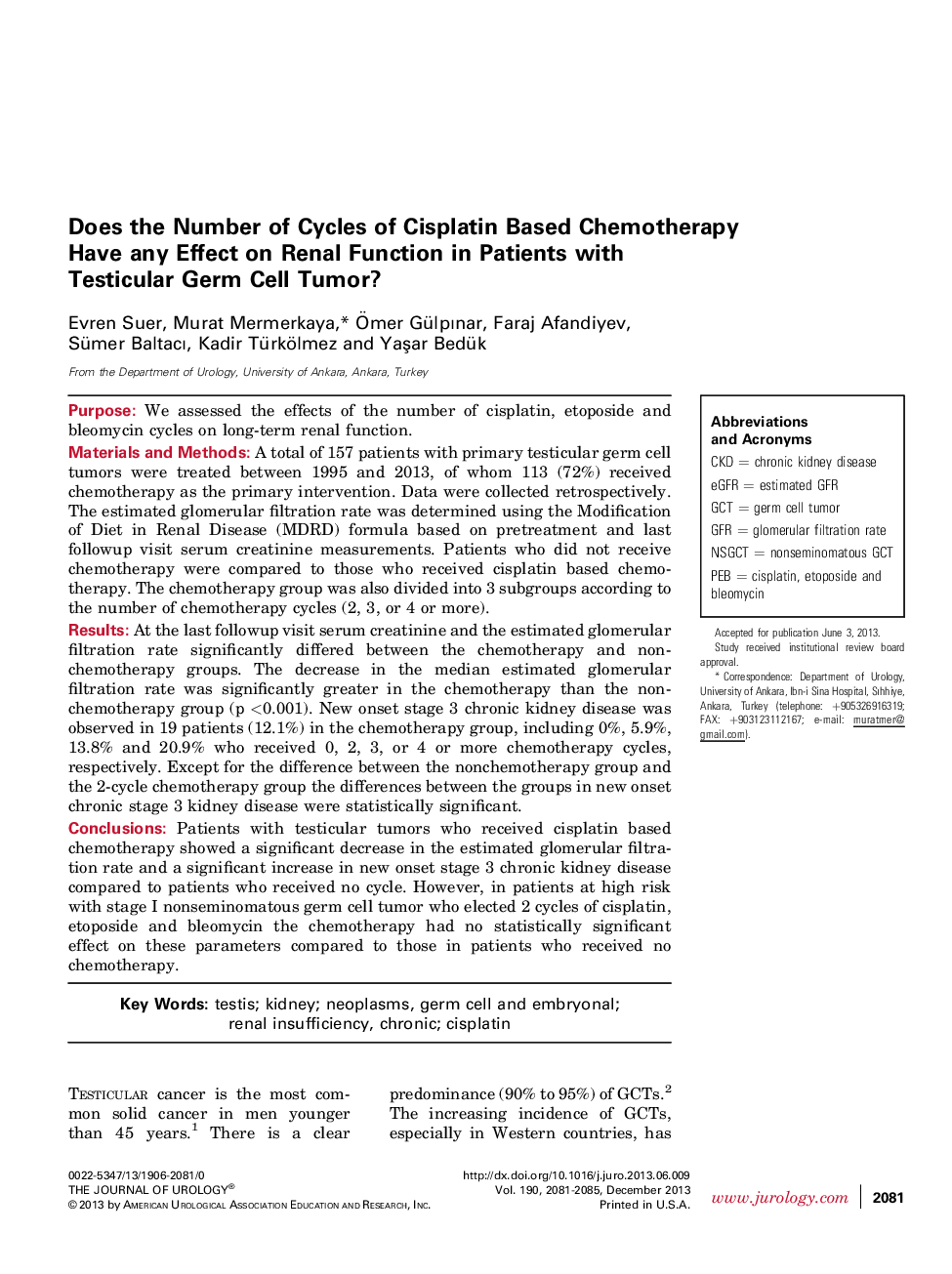| Article ID | Journal | Published Year | Pages | File Type |
|---|---|---|---|---|
| 3861386 | The Journal of Urology | 2013 | 5 Pages |
PurposeWe assessed the effects of the number of cisplatin, etoposide and bleomycin cycles on long-term renal function.Materials and MethodsA total of 157 patients with primary testicular germ cell tumors were treated between 1995 and 2013, of whom 113 (72%) received chemotherapy as the primary intervention. Data were collected retrospectively. The estimated glomerular filtration rate was determined using the Modification of Diet in Renal Disease (MDRD) formula based on pretreatment and last followup visit serum creatinine measurements. Patients who did not receive chemotherapy were compared to those who received cisplatin based chemotherapy. The chemotherapy group was also divided into 3 subgroups according to the number of chemotherapy cycles (2, 3, or 4 or more).ResultsAt the last followup visit serum creatinine and the estimated glomerular filtration rate significantly differed between the chemotherapy and nonchemotherapy groups. The decrease in the median estimated glomerular filtration rate was significantly greater in the chemotherapy than the nonchemotherapy group (p <0.001). New onset stage 3 chronic kidney disease was observed in 19 patients (12.1%) in the chemotherapy group, including 0%, 5.9%, 13.8% and 20.9% who received 0, 2, 3, or 4 or more chemotherapy cycles, respectively. Except for the difference between the nonchemotherapy group and the 2-cycle chemotherapy group the differences between the groups in new onset chronic stage 3 kidney disease were statistically significant.ConclusionsPatients with testicular tumors who received cisplatin based chemotherapy showed a significant decrease in the estimated glomerular filtration rate and a significant increase in new onset stage 3 chronic kidney disease compared to patients who received no cycle. However, in patients at high risk with stage I nonseminomatous germ cell tumor who elected 2 cycles of cisplatin, etoposide and bleomycin the chemotherapy had no statistically significant effect on these parameters compared to those in patients who received no chemotherapy.
